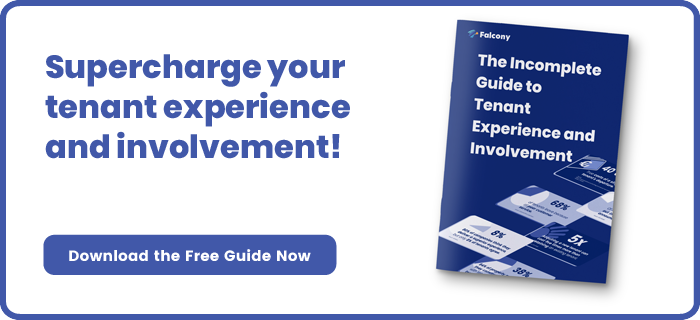Why You Need to Start Measuring Tenant Satisfaction?
In the property management industry, tenant satisfaction is a key indicator of a successful and sustainable business.
As a landlord or property manager, it’s essential to understand the experiences and expectations of your tenants to ensure long-term tenancy, reduce turnover rates, and maintain the reputation of your properties. Measuring tenant satisfaction not only highlights areas of improvement but also helps you build stronger relationships with your tenants, ultimately leading to better financial performance and operational efficiency.
Retain Tenants for the Long Term
Tenant retention is one of the biggest challenges for property managers and landlords. High turnover rates can be costly, with expenses for advertising, repairs, and lost rent adding up quickly. By measuring tenant satisfaction regularly, you gain valuable insights into their needs and concerns, allowing you to proactively address issues before they lead to dissatisfaction and potential departures.
Satisfied tenants are more likely to renew their leases and recommend your property to others, reducing vacancies and improving overall stability.
Identify Areas for Improvement
Even in well-maintained properties, there are always areas for improvement. Tenant satisfaction surveys provide a direct line of communication between you and your tenants, enabling them to voice concerns that may not be immediately apparent to you. Whether it’s maintenance requests, communication issues, or concerns about communal spaces, regular feedback ensures that you are aware of any problems that could affect the tenant experience.
By addressing these issues promptly, you can enhance your properties and prevent minor inconveniences from escalating into larger problems that could impact tenant retention or even the reputation of your property.
Improve Property Management Services
Tenant satisfaction measurements are not just about addressing maintenance issues; they also provide insights into the quality of services you provide. Are your tenants satisfied with how quickly maintenance requests are handled? Do they feel their concerns are taken seriously? Are communication channels clear and responsive? By measuring these factors, you can refine your processes and ensure your team is meeting or exceeding tenant expectations.
Improving these services doesn’t just benefit your tenants—it can streamline your operations, reduce complaints, and create a more positive environment for everyone involved.
Enhance the Tenant Experience
In today’s competitive rental market, tenants have high expectations. A property that might have been satisfactory five years ago may no longer meet the standards tenants expect today. Tenant satisfaction surveys help you track changing expectations, so you can stay ahead of trends and enhance the overall living experience.
By focusing on improving amenities, services, and the overall atmosphere, you show your tenants that you value their input and are committed to creating a comfortable and convenient living environment.
Support Data-Driven Decision Making
In a market that constantly evolves, relying on gut instinct alone isn’t enough. Data-driven decisions are crucial for ensuring the long-term success of your property management strategy. By regularly measuring tenant satisfaction, you accumulate a wealth of data that can inform decisions about property upgrades, pricing adjustments, and even marketing strategies.
This data also enables you to benchmark your properties against industry standards, ensuring that your practices remain competitive.
Mitigate Negative Reviews
In the digital age, tenants are quick to share their experiences, often through online reviews. A dissatisfied tenant is more likely to leave a negative review, which can damage your reputation and deter prospective tenants. Regularly measuring satisfaction gives you the opportunity to identify and resolve any issues before they escalate, reducing the risk of negative feedback. It also shows potential tenants that you take their experiences seriously, which can lead to a stronger reputation in the market.
Conclusion
Measuring tenant satisfaction is no longer just a nice-to-have—it’s a crucial element of effective property management. By regularly gathering feedback and responding to tenant needs, you can improve retention, enhance the tenant experience, and make data-driven decisions that contribute to the long-term success of your properties. In an increasingly competitive rental market, understanding and meeting tenant expectations will help you stay ahead of the curve and build a reputation as a responsive and responsible landlord.
If your organisation is looking for a 360° tenant experience tool to involve all employees, service providers and tenants to improve the quality of your operations, have a look at the 30-day free trial of Falcony | Tenant Portal:
We are building the world's first operational involvement platform. Our mission is to make the process of finding, sharing, fixing and learning from issues and observations as easy as thinking about them and as rewarding as being remembered for them.
By doing this, we are making work more meaningful for all parties involved.
More information at falcony.io.

Related posts
What is Tenant Sentiment Analysis?
In today’s competitive property management landscape, understanding tenant sentiment has become a...
How Tenant Portals Increase Occupancy Rates
In the competitive landscape of commercial real estate (CRE), maintaining high occupancy rates...
Enhancing Tenant Involvement: Strategies for Effective Communication
Effective communication is the cornerstone of tenant involvement in commercial real estate.
...






